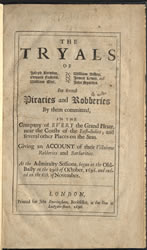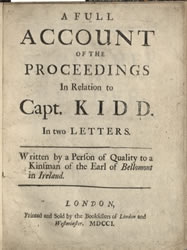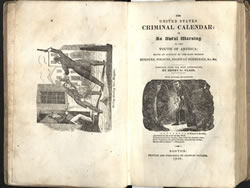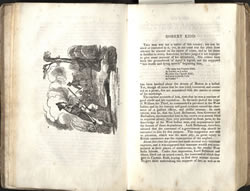
By the 1690s, English pirates began to leave the Atlantic for the Indian Ocean where they preyed upon Muslim pilgrimage vessels heading to the Red Sea. Most of these captains and crews were based in the North American colonies where they intended to return, as many did. The English crown feared these depredations would seriously harm the prosperity of the wealthy East India Company that held a monopoly over English trade in the Indian Ocean. Although pirates remained staunchly protected in many of the American colonies, London imperial administrators initiated a series of legal and political reforms that gave the crown greater control over her ports across the Atlantic.
This celebrated trial of English Red Sea pirates exposed the open support of global piracy in the American colonies by the local gentry. Although colonial ports like Charles Town, Philadelphia, New York City, Newport, and Boston were known as “pirate nests” for decades, this 1696 trial exposed the size and scope of the problem, making it a matter of public record. This led to a transformation in the administration of the English empire over the following decade.
The most legendary tale of piracy in American history was also its most confusing and controversial. Captain William Kidd was a celebrated privateer who lived with his wife and children in New York City, where he owned a pew in Trinity Church. He obtained a commission from powerful English aristocrats to hunt the Red Sea pirates but instead possibly committed piracy himself. Tales of his buried treasure became the stuff of legend in the early nineteenth century United States.
The criminal narrative continues to be a popular genre even today. This nineteenth century criminal calendar tells the story of “Robert Kidd,” mistaking the name of William Kidd, as a warning to the wayward youth of America.






